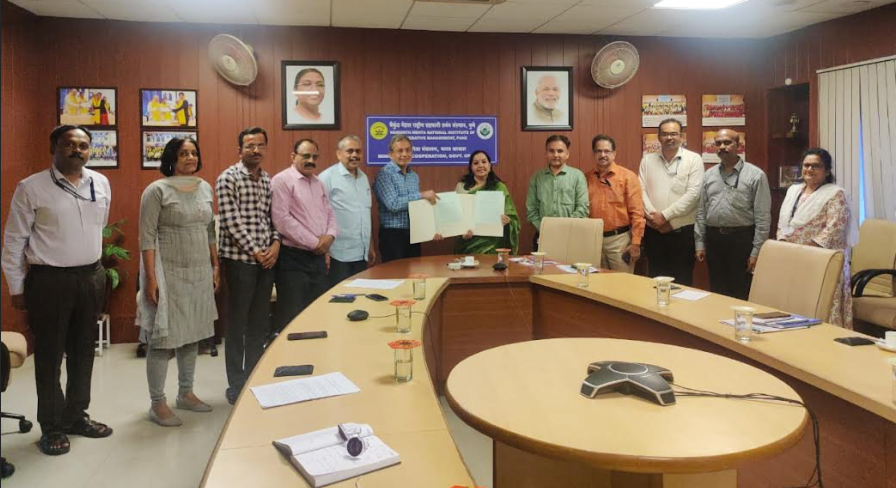In a significant step towards enhancing cooperative socio-economic development, VAMNICOM has entered into a Memorandum of Understanding (MoU) with the Maharashtra Cooperative Development Corporation Limited (MCDC), Pune.
The MoU was signed on July 1, 2024, in the presence of Milind Akre, Managing Director of MCDC, and Dr. Hema Yadav, Director of VAMNICOM. MCDC aims to uplift cooperative-based institutes and Farmer Producer Organizations (FPOs),claims a press release sent by Vamnicom.
MCDC also acts as a nodal agency for several major initiatives including those funded by NABARD, NCDC, NHM, World Bank’s SMART and Project on Climate Resilient Agriculture (POCRA), and the Prime Minister’s Formalization of Micro Food Processing Enterprises Scheme (PMFME), among others.
Additionally, MCDC’s collaboration with various national and state-level NGOs aims to bolster cooperative business initiatives and build the capacity of cooperatives in the export, seed, and organic sectors, creating vast business opportunities.
The partnership between VAMNICOM and MCDC will focus on training, research, and extension activities aimed at community-based organizations (CBOs). The collaboration will cover areas such as capacity building, mentoring support, value chain and supply chain management, agriculture input management, research and technology transfer, infrastructure and warehouse management, and creating an enabling environment for ease of doing business for CBOs.
Moreover, MCDC will work with VAMNICOM’s seven specialized centers: the Centre for Cooperative Management (CCM), the Centre for Training Information System (TIS), the Centre for Management Education (CME), the Centre for Information Technology (CIT), the Centre for Research, Consultancy & Publication (CRP), the Centre for Gender Studies (CGS), and the Centre for Entrepreneurship Development (CED). This synergy aims to address stakeholders’ needs and promote the development of the cooperative ecosystem at the grassroots level.
Milind Akre suggested preparing an action plan where at least ten Primary Agricultural Credit Societies (PACS) working in farm and non-farm sectors could be trained to assess the impact of the training on their socio-economic status. Dr. Hema Yadav assured that VAMNICOM would work closely with MCDC to develop a role model outcome-based training assessment model that could be replicated nationwide for the benefit of the cooperative ecosystem.
The event concluded with gratitude towards Milind Akre, Dr. Hema Yadav, and all faculty members of VAMNICOM and MCDC who contributed their valuable insights for the collaborative efforts between the two organizations.





















































